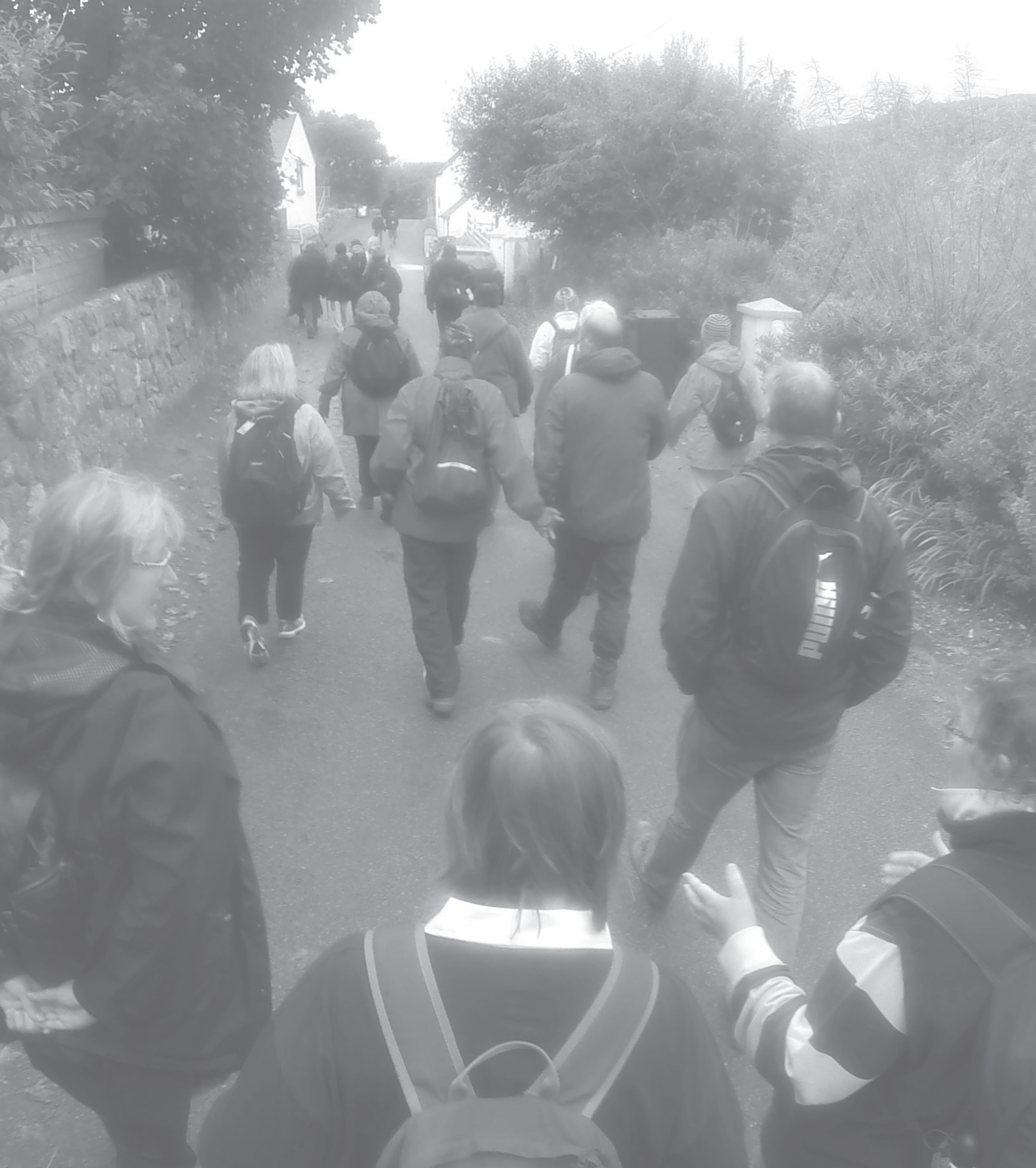
4 minute read
Being a child of God in Community: Iona 1975 (Ruth
Hands held tightly across the row of six bodies, bent bold against the gale, we are gripped close by our teacher as we stride home through the wild wind. She stops at MacLean’s Cross. ‘Look!’ she says, peering through the murk across the Sound of Iona. ‘Look! The waterfall on Mull is being blown upwards!’
And it surely was – powering water, pouring up.
Advertisement
For the first 10 years of my life I lived in intentional Christian communities, the last five of these as part of the Resident Group in Iona Abbey. We were there as a family. But where most of my contemporaries lived with a small group of relatives in a house, and went to school with many more children, our lives were lived back to front. We lived with up to 50 folk in a restored Benedictine Abbey, and I attended a school of five pupils – the majority of whom were my relatives.
That blustery winter morning in 1975 we were no Celtic poets scribbling reflections to God’s glory in the margins of our journals, as the holy men on our island home had been some 1300 years earlier. But we were just as awestruck by divine power and passion as the rain streamed down our faces, and ‘up’ the cliffs of Mull.
Few unrelated playmates meant we fell back on inner resources. The wildness of the barn and the beach became our playground, the feral foraging along the seashore our play. I remember a glorious evening as an eight-year-old spent alone by the jetty, getting first the hems, then the knees and then the waist of my trousers wet. I kept going, up to my chest, my chin in the Atlantic, until I was part of the ocean, fully clad, fully alone, up to my neck in creation. An Ezekiel moment of both awe and terror.
The island of Iona is a sliver of beauty: windswept, holy Atlan
tic gneiss and granite. Yet as children we knew little about the geology, never mind the spirituality of the island.
We had arrived from the Gorbals in 1971, fresh from inner-city Glasgow, where our large Victorian tenement home, along with hundreds of others left to rot in the late 19th century, was now being razed to the ground, to be replaced by prefabricated skyscrapers that would last no more than three decades. The people’s lives were turned upside down. ‘Decanted’, they called it, from their homes to ‘streets on end’, whole communities were ‘diasporated’. Our decanting, to Iona, was a different kind of culture shock – the first few weeks my sister and I held hands tightly to cross the village street, anxious to follow the Green Cross Code, puzzled by the lack of zebra crossings to protect us from the two cars that passed daily.
Our parents, Molly and John, had been part of the pioneering Gorbals Group Ministry, modelled on the East Harlem Protestant Parish of 1960s New York, where groups of Christians committed to the social gospel chose to live alongside the poor – sharing money, food, prayer and work in common, committed to lifting hearts and bodies out of poverty. The demolition of our home meant we moved to be part of the Iona Community – a similarly prophetic group of Christians committed to peace and justice and the non-violent transformation of the world.
For me, as an extroverted child, this was a glorious way to grow up! I relished the common space, the Abbey Church worship twice daily, the shared meals with 50, the freedom of the island. I assumed that what we had was the norm.
Small wonder, then, that the reality check of being ‘decanted’ from there, first to a tiny cottage in the middle of nowhere, then to a housing estate in central Scotland where sectarianism was rife – and where to admit your religious allegiance could result in being spat on or worse – was a shock. Not as big a shock, however,
as having to learn to live in a home with only six, and to go to school with hundreds.
The resilience of children to weather the storms not just of our Atlantic weather system, but of adult choice, is awesome. The damage we can do to children, inadvertently, in our well-intentioned adult decision-making requires careful reflection. As I continue to ‘decant’ my life daily, from experience to experience, I live in equal awe of those children whose lives are propelled into situations of emotional or physical danger through no choice of their own, and whose resilience in the face of war, hunger, terror and death knows no bounds.
Triple-belonging: Cumbria 2019
Years later, when my husband Nick and I decided that our joint spiritual belonging, with our children, was to the Society of Friends (Quakers), I made an adult commitment to belong more fully – and have since described my triple-belonging as three essential legs of a stool. I dwell in my Presbyterian heritage because it is my inheritance – and like all such inheritances, I belong to my church with comfort and discomfort in equal measure. I dwell in my Quaker belonging because it’s one way that my now-family can hand-on-heart attend weekly worship and all feel at home. But I live through my Iona Community belonging because it reminds me that while I may be a member of three human institutions, my true belonging is to a greater, wider, deeper community of worldwide believers of all hues and traditions.




